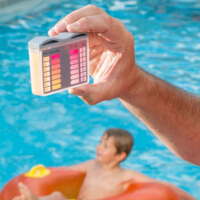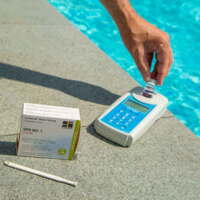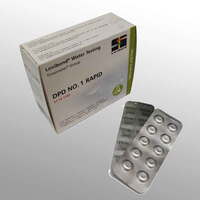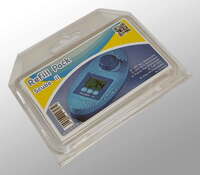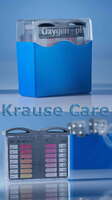- Home
- NY Pool & Spa
- Water testing equipment for pool and Spa
test water quality
On this page you will find all the products and remedies you need to carry out important tests of your bathing water. With our wide range of test tablets, test strips and digital testers, you will be able to measure everything from pH value, alkalinity, bromine, PHMB, chlorine and more.
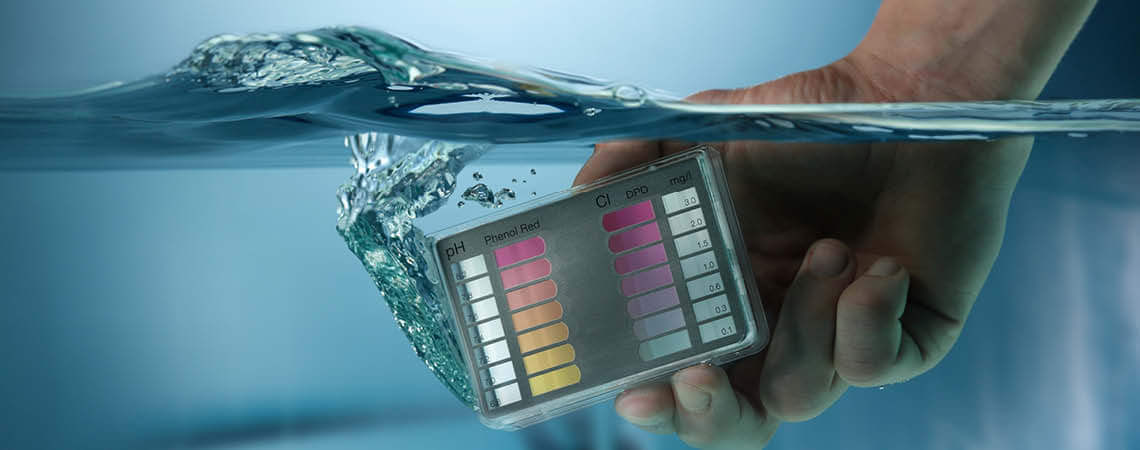
Spa & Pool Chemistry & Test Equipment
Krause Care offer market-leading Spa & Pool chemistry from HTH, Saniklar. SpaCare & Lovibond® for cleaning your Spa & Pool. These products are professional and quality-assured pool chemicals for private pools, which constitute your guarantee for clean and safe bathing water.
Since 1971, Saniklar has developed and produced Pool products especially for Scandinavian water. Our Pool chemistry is easy to use, removes bacteria and prevents any problem. On this page, you will be able to find the full overview of our wide range of care and chemical products, test equipment and other accessories that contribute to making the bathing experience absolutely superb.
It's not only chlorine in the water that makes your eyes red and itchy.
It's high season for splashing and frolicking in swimming pools and hot tubs.
But what is actually going on below the surface of the water? For example, is it dangerous to swallow the pool water? And what exactly is it that stings in the eyes?
Henrik Rasmus Andersen, associate professor at DTU Environment, has researched the chlorination of swimming pools, and here he reveals the ugly truths about the pool.
1. It is a bad sign if the pool smells of chlorine
It can seem reassuring when the nostrils are greeted by a strong smell of chlorine, because then the bacteria must have been killed and the water must be completely clean, right?
But that's not how it goes together, says Henrik Rasmus Andersen:
- The nitrogen compounds found in urine, sweat and on our skin form some substances that our nose decodes in the same way as chlorine. This means that if someone urinates in the pool, it smells the same as chlorine. A clean pool should not smell.
This is also why, for example, there is often more of a chlorine smell at the baby pool in the swimming pool.
2. It is pee and not chlorine that stings and causes red eyes
If you open your eyes underwater in the pool, they may become red and irritated. But contrary to what most people think, it's not the added chlorine that's bothering you.
It is, on the other hand, the other bath nymphs' poor hygiene.
- What irritates your eyes are nitrogen compounds from urine and sweat, says Henrik Rasmus Andersen and emphasizes:
- This is why it is so important to rinse off before jumping into the water - both in the swimming pool, but certainly also in the pool.
So even if you're jumping in to cool off in the heat, you're doing everyone a favor by getting in the shower first.
3. It is (almost) not dangerous to swallow the chlorinated water from the pool
Overall, there is no reason to fear that you or the children will get a little too much chlorinated water inside when you bathe.
- It is not dangerous to drink, and there are many places abroad where you have the same amount of chlorine in the drinking water as in the pool, says Henrik Rasmus Andersen.
It can cause a serious stomach infection that can cause diarrhea for several weeks
Henrik Rasmus Andersen, associate professor DTU Environment
However, there is one danger in swallowing the pool water. Indeed, there is a parasite that is not killed by chlorinated water, and which is particularly typical in southern European swimming pools.
- It is called cryptosporidium and can cause a serious stomach infection with diarrhea for several weeks. Because it is not a bacterium, but a parasite, it cannot be treated with antibiotics, and it is therefore somewhat difficult to get rid of.
It is only if you have had symptoms for a long time and go to the doctor that you are tested and thus can receive the right treatment.
We don't know much about how widespread the parasite is in Denmark, but in England they are hit by regular epidemics.
4. Chlorinated water does not bleach your skin on holiday in the sun
Concentrated amounts of chlorine can be used to bleach your white t-shirts, but the amount found in the swimming pool does not bleach your skin, says Henrik Rasmus Andersen.
- It doesn't fit at all.
You can therefore calmly sunbathe by the pool without getting a paler result. However, remember the sunscreen, as the water reflects the sun's rays.
Contact. NY Pool ApS • Glostrup & Præstø • Phone +45-33110911 • E-mail mail@nypool.dk

-
15% Off
-
192,00 DKK Incl. VATexcl. shipping
-
15% Off1,00 DKK per 1unit176,00 DKK per pack Incl. VAT206,00 DKK Incl. VATYou save:0,17 DKK per 1unit30,00 DKK per packexcl. shipping
-
14% Off99,00 DKK Incl. VAT115,00 DKK Incl. VATYou save: 16,00 DKKexcl. shipping
-
15% Off158,00 DKK Incl. VAT185,00 DKK Incl. VATYou save: 27,00 DKKexcl. shipping
-
1.440,00 DKK Incl. VATexcl. shipping








